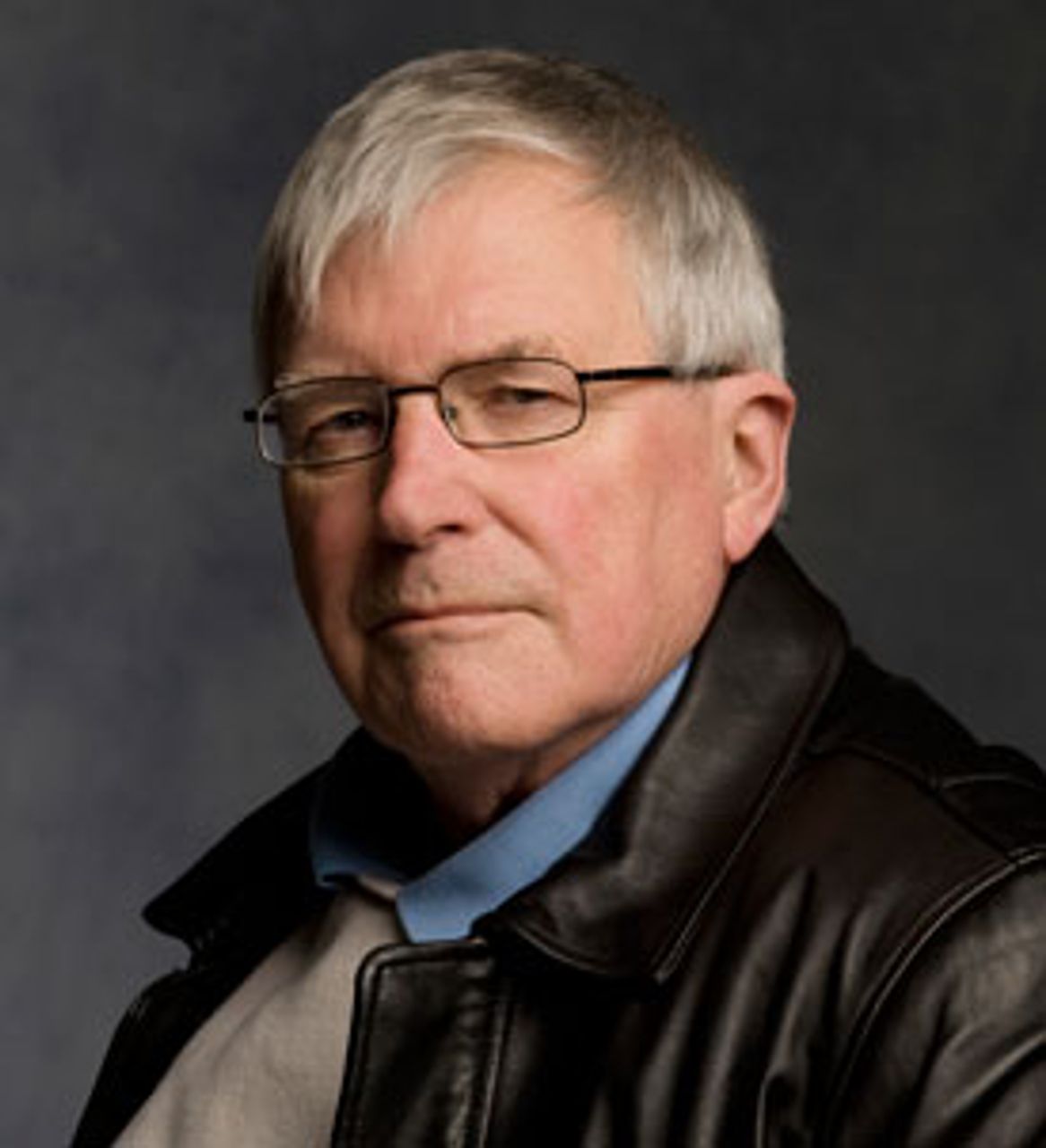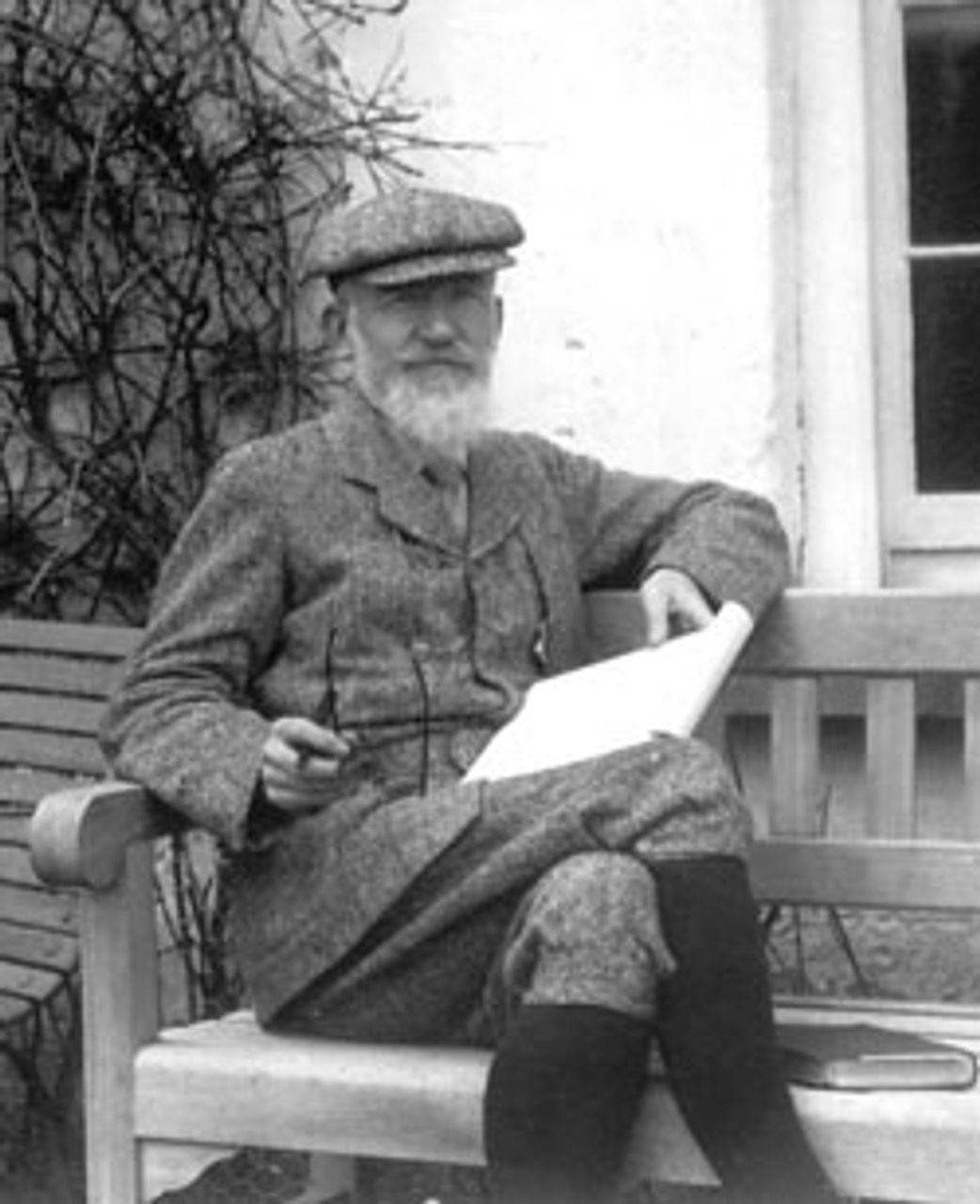George Bernard Shaw’s Heartbreak House, one of the playwright’s most significant works, is currently playing in repertory at the Shaw Festival in Niagara-on-the-Lake, Ontario. It will run until October 7. (See “The Shaw Festival’s 50th Season: George Bernard Shaw’s Heartbreak House”.)
 Christopher Newton
Christopher NewtonJoanne Laurier of the WSWS recently spoke to Christopher Newton, director of the production. The British-born Newton served as artistic director of the festival from 1979 to 2002. He directed a production of Heartbreak House there in 1985.
* * * * *
Joanne Laurier: Aside from the general need of the festival to restage Shaw’s important plays every so often, what specifically prompted you to direct Heartbreak House this year?
Christopher Newton: The work itself is constantly interesting as a piece. So it’s always been in my head to grab any chance to do it. It’s such a fascinating play. [Polish stage director] Tadeusz Bradecki did a production for me in 1999 when I was artistic director. It seems the time to do it had come around again. It’s one of the great ones. There are 10 or 12 really, really good plays by Shaw and this one was just circulating around.
JL: Why do you think it’s one of his greatest plays?
CN: The quote I used from Ron Bryden [1999 Heartbreak House program] is very interesting in that he talks about the fact there are so many themes, so many plays hidden underneath the surface. That’s the first thing. It’s incredibly dense, incredibly rich. It is also a hard look at that particular society. It’s a very difficult play and I think that’s reflected in the response of the normal press who could not make up their minds about it.
I think this is because ultimately the play is saying that the playgoer is at fault. What I mean by that is that when the bombs begin to fall at the end of the play, they are close to falling on the kind of people who go to plays. Mazzini Dunn says at one point: “You’re the most wonderful people. You talk, You’re civilized. You’re quite liberal in your feelings, etc….” But they don’t do anything. They rely on the old man [Shotover] to make them a bit of money. Actually, it’s their fault that the bombs begin to fall. It’s their fault because they don’t even mention there was a war until someone drops a bomb on them.
That’s the difficulty of the play for an audience and that’s the fascination of the play. It’s one of the fascinations for me.
JL: This was a social layer that Shaw was very critical of and also very fascinated by.
 George Bernard Shaw in 1922
George Bernard Shaw in 1922CN: He was part of it. He realized both his power and his impotence from that point of view. And I think the play is slightly self-critical. Remember, he did actually become a local politician. He sat on one of the borough councils for a short time, but never did anything else. In the play, Mazzini, in a wonderful speech, describes how he wrote pamphlets, attended meetings. He is a very sympathetic man who is the only one at the end who feels disturbed by the fact that Mangan and the burglar are dead. But he did not do anything and the bombs fall.
JL: In Shaw’s preface, he talks about the doers and those who philosophize about the situation, write about it and create poems about it.
CN: This is at the heart of the whole matter. A Chekhov play zeros in on something. This play moves in the opposite direction. It moves out from the individuals into something else. The other thing about the play is that it is a dream play. If you start a play with somebody falling asleep, it means only one thing. There are some elements of the dream in it. Are they dreamwalking into this destruction? I think it’s something like that.
JL: How could the population have been prepared for World War I?
CN: Even if they were cognizant that it was happening, nobody stopped it. Nobody stood up before it happened. Shaw stood up when it did happen and said, “This is terrible.” But he was not standing up beforehand. People could not see. It was as if they were in some kind of dream.
JL: He was an anti-war artist despite some confusion on his part in later years.
CN: Absolutely.
JL: Are you pleased with the production?
CN: I think the production is good. We worked very hard on it. It came together on the opening night. Not all the popular critics were pleased, of course. I’m not surprised really because the audience is asked to think. That’s not usual nowadays in the theater.
I’ve just been to Stratford for instance, and watched Des McAnuff’s Twelfth Night, which is a huge explosion of energy and everything else on the stage. It’s more entertainment than an examination of the play, which can be useful as an introduction to those who aren’t familiar with the play.
But I don’t go that way. I want my plays to be highly entertaining. But if it’s a great play such as Heartbreak House, I want the audience to think as well. And, as I say, that’s not usual nowadays.
JL: It’s a very demanding and challenging play, and your production is also highly entertaining. Given the present cultural climate, which is pretty degraded, do you think the play presents specific challenges for contemporary audiences?
CN: The audience is fractured, like society at this moment. I don’t want this to sound as if when I ran the festival it was all great and now it’s not. But it took me five or six years when I took over the festival to begin to build an audience for Shaw. It was slightly easier at that time because he had only died some 30 years before. So he was still a presence. Now he is not.
Because of this, the danger is that a director can become muscle-bound, if you like, catering to people who know what to expect when they go to a particular theater. And your productions can go dead, as happened at Bayreuth [Festival in Germany] with Wagner after a time.
I think you have to develop almost a cult for your particular work. The theater does not work like a mixed bag anymore. I ran two provincial theaters and used to think of them as libraries. You could do a bit of Shakespeare and then do a farce and so forth.
But I’m not sure that’s how it should work anymore. I think you must be known for examining a particular thing. Stratford was known for examining Shakespeare. Now it’s become known for Jesus Christ Superstar. I think the Shaw Festival should be a place that examines the late nineteenth century and early twentieth century in every way. I used to use a catchphrase, “plays about the beginning of the modern world.” People should know that’s what they are going to get.
But what should be possible, if Shaw is at the center of it, is that you can do weird and explosive productions. You look around for some of the most interesting directors in the world and you ask them to come and work with this brilliant acting company. The material is not new, but then, they don’t do new operas at Bayreuth.
JL: We are entering a period when there will be a demand for more serious work, for works old and new that truthfully look at the world. In this light, could you expand on your comment in the program: “Heartbreak House is one of the greatest plays in our language and its meaning will, of course, change with every generation. But for our time it is, I think, a warning of possible things to come.”
CN: We have been watching what has been happening in the US for the last few years—the fracturing of the American political system. The fact that the rich are getting richer and the poor are getting poorer. When I say it’s a warning, it is a warning to all us decent liberals of whatever stripe that we have to do something. In some ways it’s an old-fashioned call to arms. The arms of ideas.
This will take different forms. Looking at both the US—and Canada—we do seem to be sleepwalking into a pretense that nothing is happening. And there is much happening.
Mind you, there are very positive developments like the Rupert Murdoch scandal in London. By pure chance, a crack has appeared in the shiny surface of that society. It could bring down the government and will also have a huge impact on the media. At last, somebody is saying something about that destructive tabloid press in Britain. It’s also a destructive force in the US and Canada.
And the media has much to do with promoting a destructive political ignorance.
JL: Your Heartbreak House is a powerful, educative weapon.
